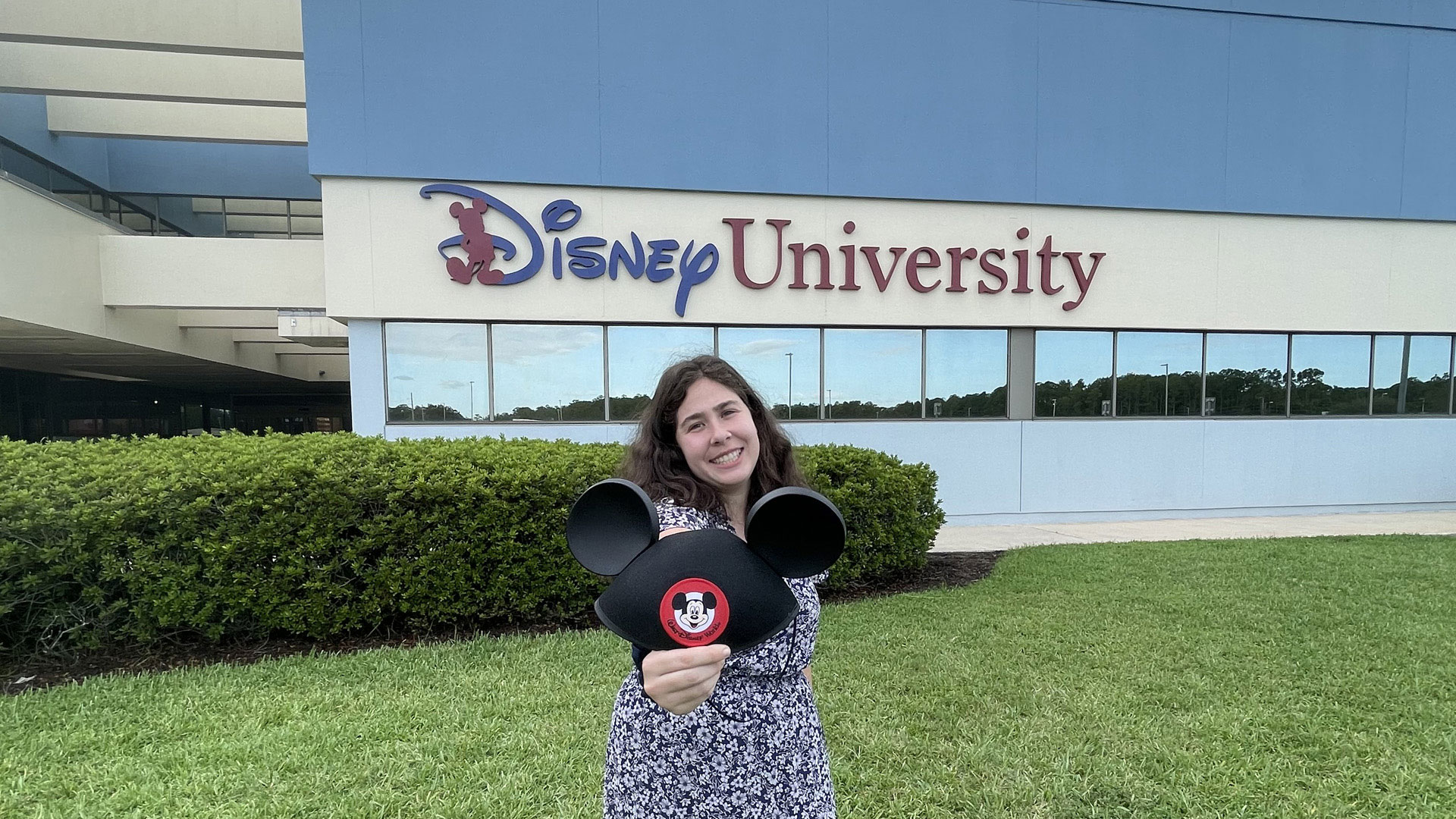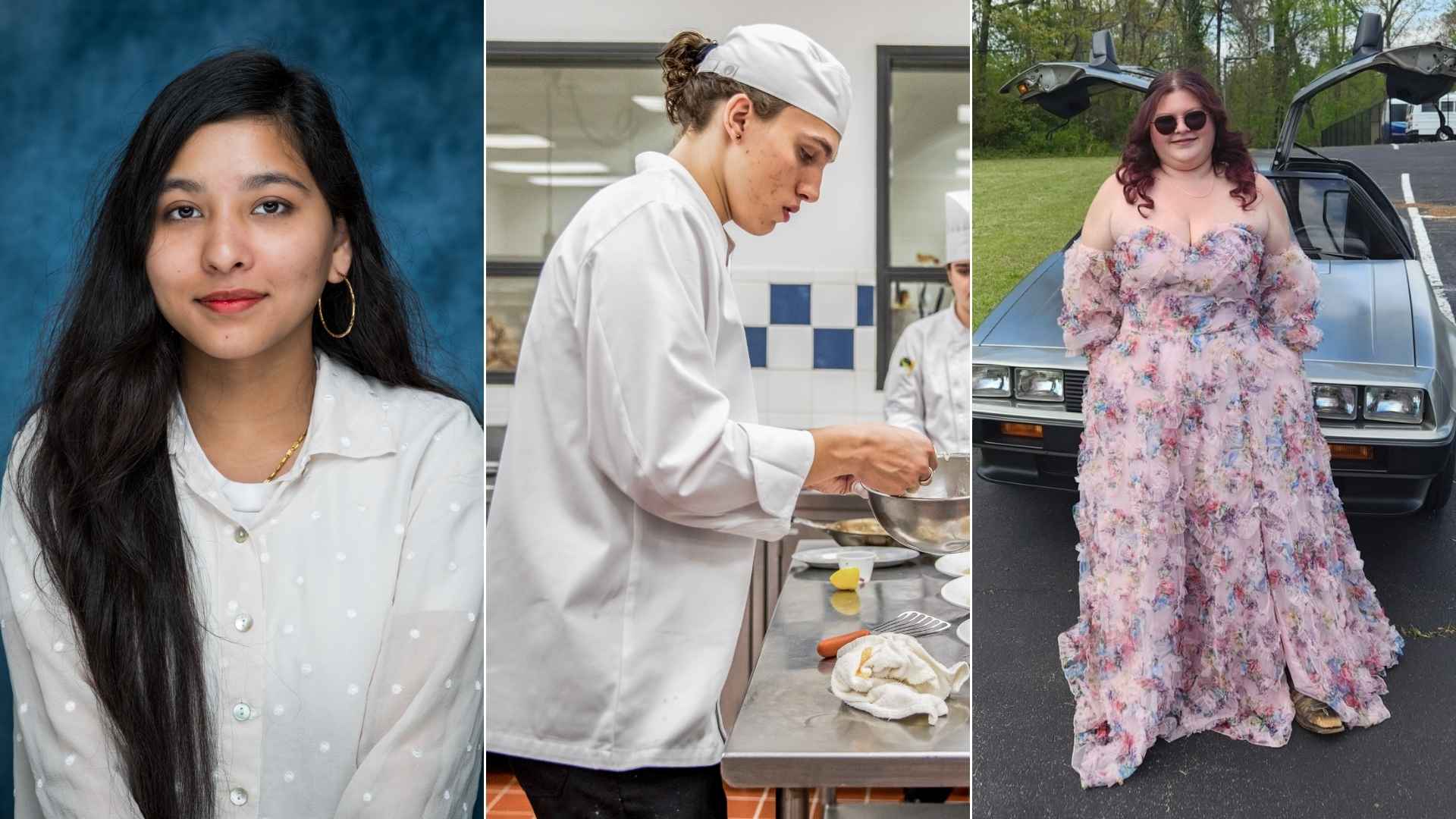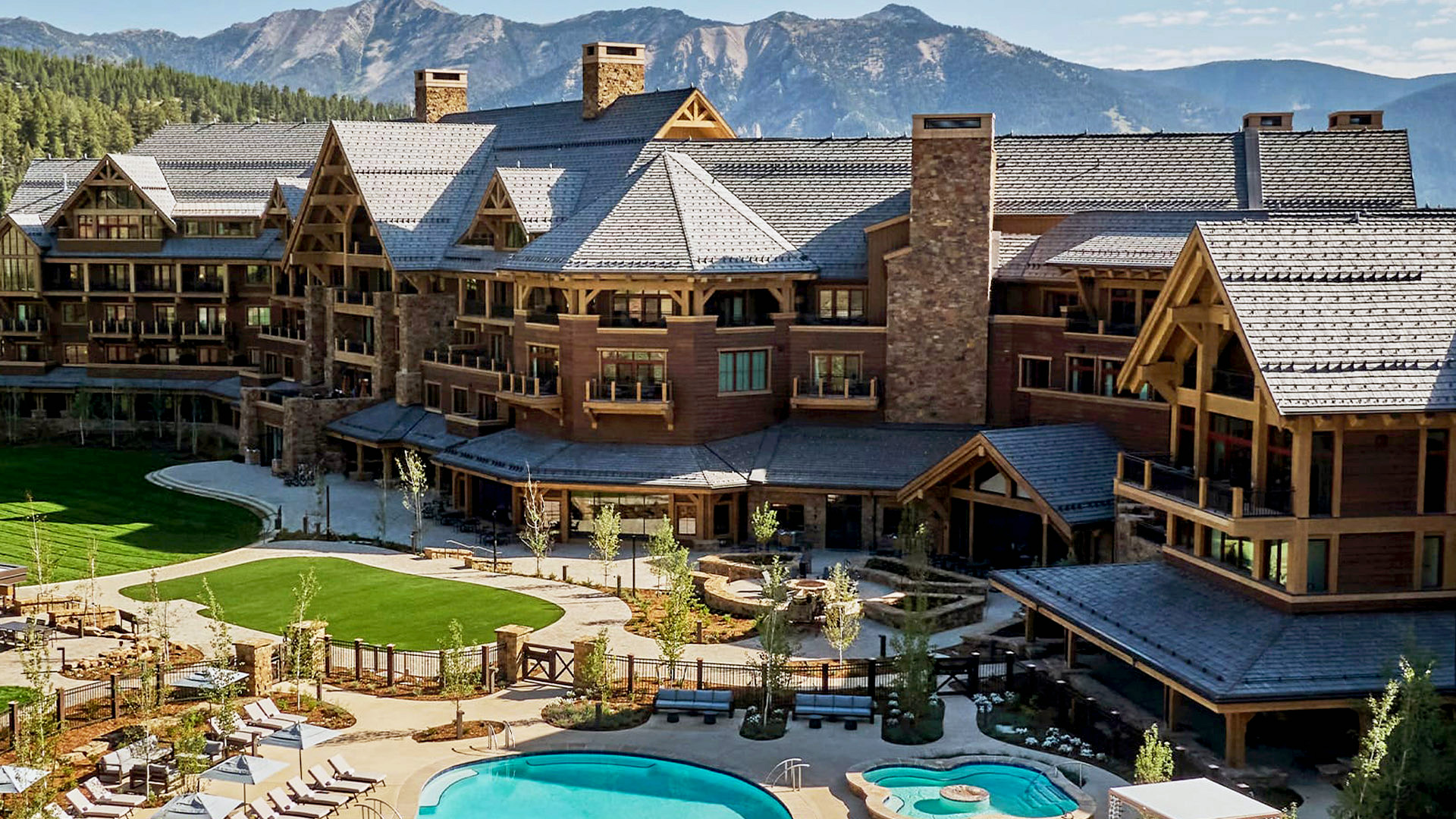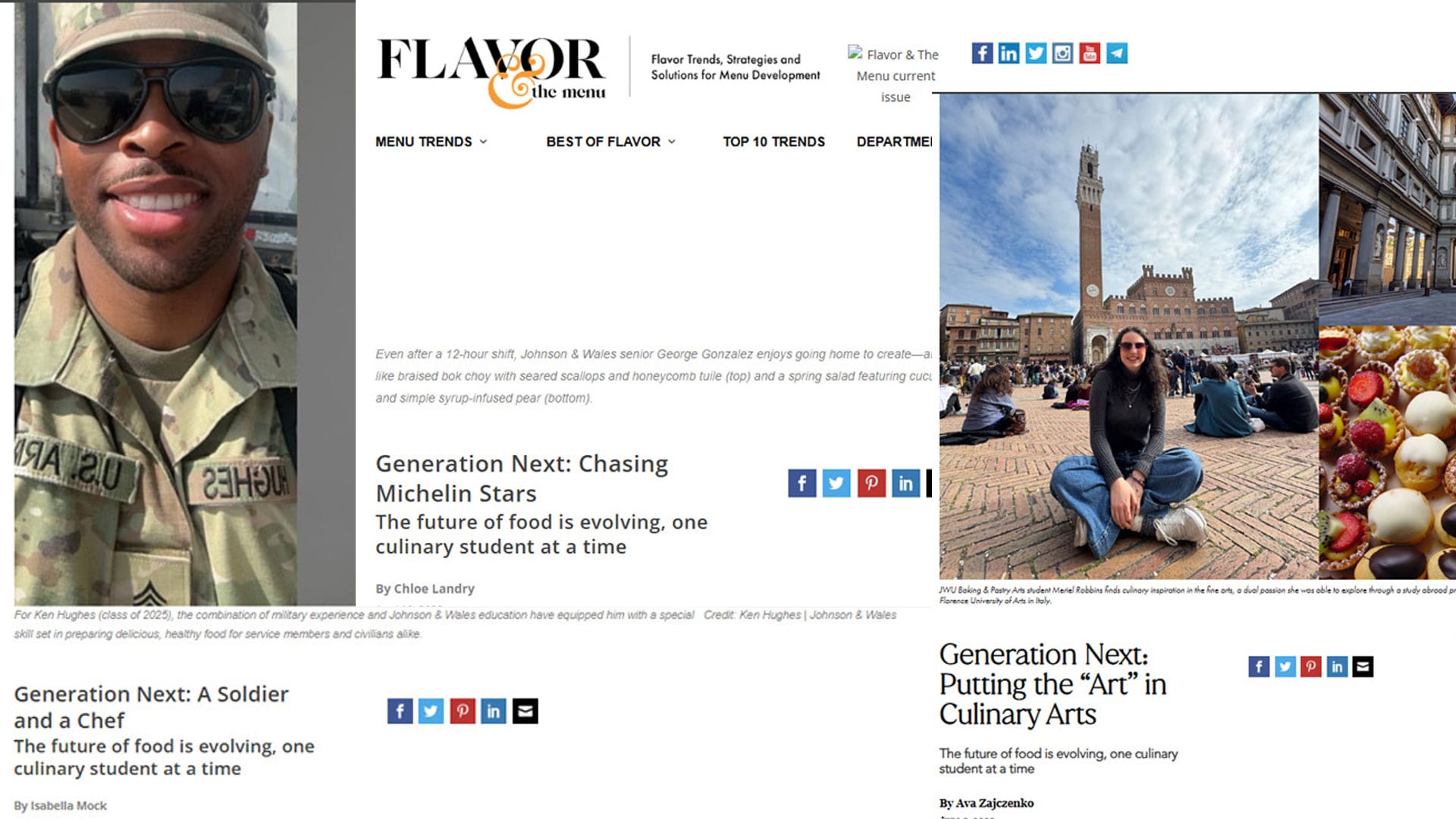Our Journey to a CTSO
November 2024 Update: National Student Organizations (NSO) are now called Career Technical Student Organizations (CTSO).
Belonging to a Career Technical Student Organization (CTSO) in high school has multiple benefits, from learning new skills and discovering new passions to being eligible for college scholarships (up to full ride) just for being CTSO members. But where do you start?
Four current Johnson & Wales students look back on their high school years to share how they first got involved in the organizations that helped change their lives.
Introducing Victoria to Like-Minded Students
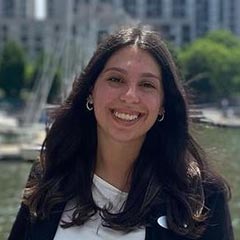 Victoria Cuttone ’23 is a double major in Finance and in Sports, Entertainment, Event—Management (SEEM) and a current DECA leader at JWU. She first participated in DECA in her second year of high school. Victoria recalls being partnered with a student named Ryan with whom she had never worked before — and yet they placed third in regionals. “I had the opportunity and support to practice and learn from the previous year on how DECA runs and what to expect,” Cuttone says of the competition experience.
Victoria Cuttone ’23 is a double major in Finance and in Sports, Entertainment, Event—Management (SEEM) and a current DECA leader at JWU. She first participated in DECA in her second year of high school. Victoria recalls being partnered with a student named Ryan with whom she had never worked before — and yet they placed third in regionals. “I had the opportunity and support to practice and learn from the previous year on how DECA runs and what to expect,” Cuttone says of the competition experience.
Her team ended up traveling to the States competition which was held in Rochester, New York. “As this was the first year I attended, I did not realize how many students attended. I saw this as a great networking opportunity,” she shares.
Although Cuttone did not advance to the International level, she was grateful for the opportunity to meet students who were like-minded while competing. She was approached by Pedneault at JWU about participating in JWU’s NSO chapter and ending up stepping up into a leadership role.
Networking and Leadership Opportunities for Evan
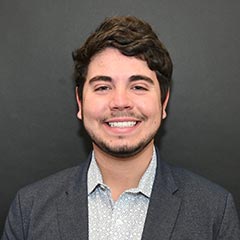 Evan Pedneault ’23, who is focusing on Hotels & Resorts in the Hospitality Management program, got involved in an NSO after seeing his older brother’s positive experience. “I joined because my brother had found great success with the teachers, professional/personal networking, and leadership skills,” says Pedneault. “He worked his way up to chapter president and graduated the class before my freshman year start.”
Evan Pedneault ’23, who is focusing on Hotels & Resorts in the Hospitality Management program, got involved in an NSO after seeing his older brother’s positive experience. “I joined because my brother had found great success with the teachers, professional/personal networking, and leadership skills,” says Pedneault. “He worked his way up to chapter president and graduated the class before my freshman year start.”
Pedneault began his own journey as a high school member of his local chapter of what was then known as Future Farmers of America and is now internationally recognized as the National FFA Organization. He rose to the role of chapter treasurer and then district president for the Connecticut FFA Association, assisting the state team, serving as a flag bearer for the national parade at the annual conference, and facilitating communication between multiple high school individual chapters. Pedneault was awarded an FFA scholarship at JWU, where he has continued being an active CTSO member and stepped up to a leadership role once again.
A Family Tradition for Mackenzie
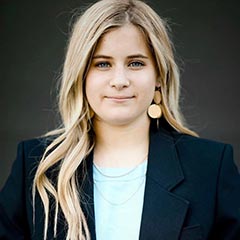 DECA was a family tradition for Sports, Entertainment, Event—Management (SEEM) major Mackenzie Weber ’24 — one that spanned generations. Weber’s grandfather was involved in the Minnesota DECA as a high school student and went on to become a DECA advisor and marketing teacher, later becoming the voice of Minnesota DECA. His family followed in his footsteps volunteering for the Minnesota DECA and BPA Association annually for student conferences and competitions. “For me, DECA is a legacy,” says Weber. “It is in my blood, and I am proud to be a third-generation DECA member.” She had always loved the organization’s competitiveness as well as its networking opportunities, and she joined DECA her freshman year of high school.
DECA was a family tradition for Sports, Entertainment, Event—Management (SEEM) major Mackenzie Weber ’24 — one that spanned generations. Weber’s grandfather was involved in the Minnesota DECA as a high school student and went on to become a DECA advisor and marketing teacher, later becoming the voice of Minnesota DECA. His family followed in his footsteps volunteering for the Minnesota DECA and BPA Association annually for student conferences and competitions. “For me, DECA is a legacy,” says Weber. “It is in my blood, and I am proud to be a third-generation DECA member.” She had always loved the organization’s competitiveness as well as its networking opportunities, and she joined DECA her freshman year of high school.
Speaking more of her grandfather’s DECA involvement, Weber shares, “He was the MC spokesperson for every conference for over 40 years. Sadly, he passed away from pancreatic cancer in 2019, so now my dad took over the role and our family couldn’t be prouder. Because it’s funny when I tell people my parents met through DECA. Almost 26 years ago, in a conference room, my dad was serving as the district president and my mom was attending the meeting so she could in the future run to become the next Minnesota DECA vice president of communications. It’s all history from there, and when my brother and I entered high school, DECA was waiting for us to join.”
Giving Garett Wings
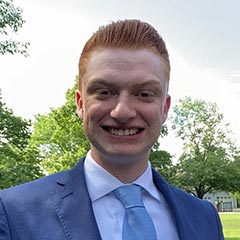 Garett Koch ’23, a double major in Accounting and Finance, credits his NSO involvement with helping him branch out and become involved while in high school. Koch didn’t really know what he wanted to do with his life but joined FBLA as a high school freshman, becoming his local FBLA’s vice president of community service.
Garett Koch ’23, a double major in Accounting and Finance, credits his NSO involvement with helping him branch out and become involved while in high school. Koch didn’t really know what he wanted to do with his life but joined FBLA as a high school freshman, becoming his local FBLA’s vice president of community service.
“FBLA chapters all around the country were holding March of Dimes fundraisers, as it was the major charity the fundraiser donated to. But our chapter ran the largest one in the nation – we raised $21,000 in one night! It was amazing, and it made me realize that I should keep doing this.”
Charged up, Koch began meeting people all around New Jersey, running for and winning the state FBLA president position and then winning a seat as vice president of the national eastern region, overseeing the entire East Coast’s national FBLA chapters while traveling the country for speeches and workshops.
“I met so many businesspeople, and it was so amazing that I thought, how can I get into college with this? I looked around, and JWU was really the only college who valued the leadership you get out of an NSO program; other colleges seemed to focus more on SAT scores. Johnson & Wales saw me as more than just a number, taking my extracurricular activities into account; I really loved that about JWU.”
Getting Started
The skills you build in high school can serve you in college and your career. Your high school may already belong to a local CTSO chapter, but if not, you can start your own chapter of DECA, Future Business Leaders of America (FBLA), Future Farmers of America (FFA) or any other organization that matches your interests!
